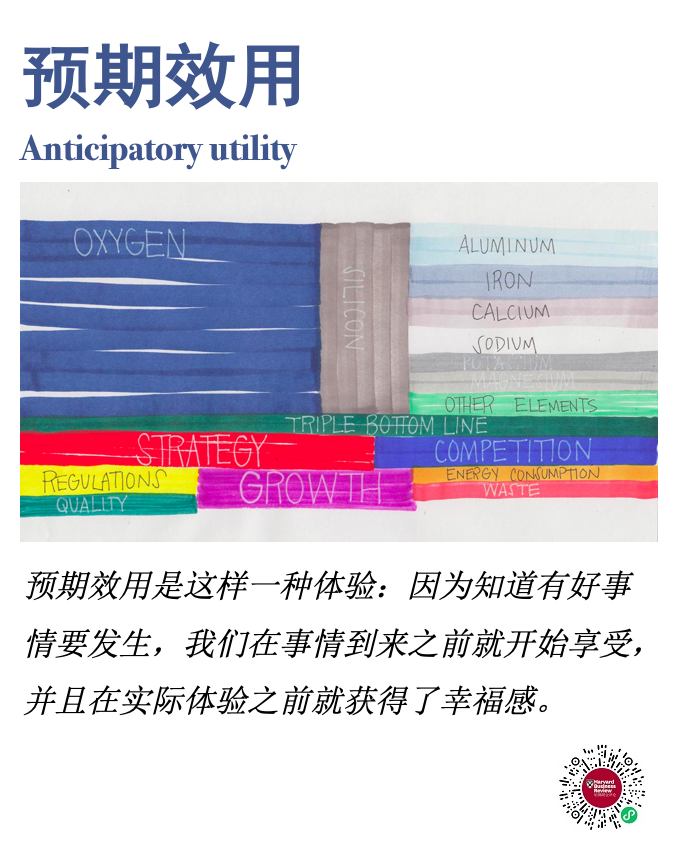
「释义」
预期效用是这样一种体验:因为知道有好事情要发生,我们在事情到来之前就开始享受,并且在实际体验之前就获得了幸福感。
预期效用可以适用于假期、烟瘾、周末……任何我们期待的事情。基本的模式是,我们从想象将在未来拥有的经验中获得快乐(效用)。这样做,我们就“免费”得到了一种积极的体验。
「应用场景」
作为人类,我们热衷于期待。一项著名的研究表明,与度假时相比,人们在计划时通常会更快乐。科学家将这种奖励称为“预期效用”。在组织写作时,你可以激发出同样的兴奋感。在利用诗歌开展的实验中,研究人员发现,在强调主线和诗节高潮出现的前几秒时,读者的奖赏回路就达到了峰值。即使在对诗歌没有兴趣的读者中,大脑图像也表现出先发制人的愉悦感。
As humans, we’re wired to savor an¬tic¬ipation. One famous study showed that people are often happier planning a vacation than they are after taking one. Scientists call the reward “anticipatory utility.” You can build up the same sort of excitement when you structure your writing. In experiments using poetry, researchers found that readers’ reward circuitry reached peak firing several seconds before the high points of emphatic lines and stanzas. Brain images show preemptive spikes of pleasure even in readers with no previous interest in poetry.
以上文字选自《哈佛商业评论》中文版2021年7月刊《优秀商业写作的八项科学法则》
比尔·伯查德(Bill Birchard)| 文
马冰仑 丨编辑




